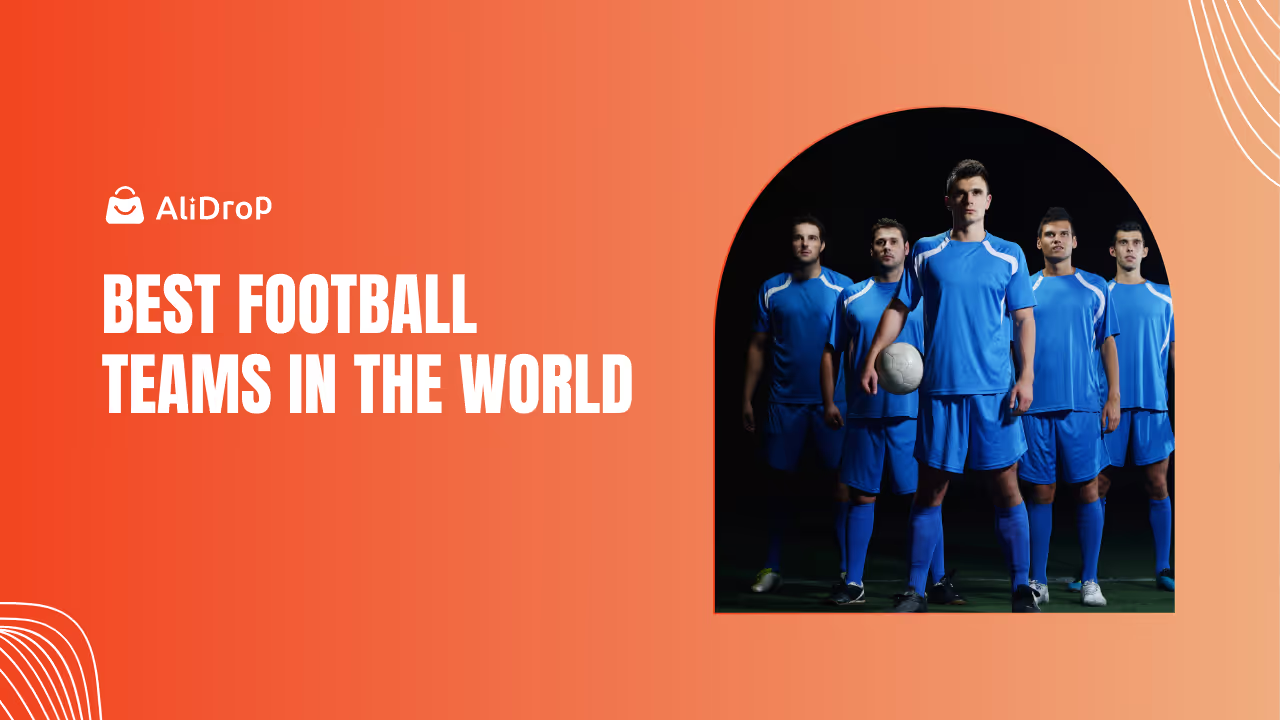Germany is Europe's largest economy and one of the world’s most influential industrial powerhouses. Its business landscape is shaped by a diverse mix of sectors, ranging from automotive giants and software innovators to global financial institutions and cutting-edge pharmaceutical companies. As of 2025, the ranking of Germany’s largest companies by market capitalization offers insight not only into the strength of its economy but also into the global trends shaping industries today.
In this comprehensive guide, we’ll explore Germany’s top companies by market cap, uncovering their core businesses, recent growth drivers, and what makes them leaders on the world stage. Whether you’re an investor, business enthusiast, or just curious about Germany’s corporate giants, this article will provide you with detailed, humanized, and SEO-optimized information to understand the country’s economic giants.
Why Market Capitalization Matters
Before diving into the list, it’s important to understand what market capitalization (market cap) means and why it’s a key metric for ranking companies.
Market cap is the total market value of a company's outstanding shares of stock. It is calculated by multiplying the current share price by the total number of shares available. It represents what investors think the entire company is worth at a given point.
Market cap is a critical indicator because:
- Reflects Company Size: It shows the relative size and economic weight of a company.
- Investment Relevance: Investors use market cap to assess risk and growth potential.
- Industry Trends: It highlights which sectors are leading economic growth.
- Global Influence: Large market cap companies often set international industry standards.
Germany’s Top 10 Companies by Market Capitalization in 2025
Let’s get into the heart of the matter — the top 10 German companies leading the market in 2025 by their impressive valuations.
1. SAP SE – The Software Giant
- Market Cap: Approximately €313.7 billion ($339.5 billion)
- Sector: Software & Technology
- Headquarters: Walldorf, Germany

SAP SE is the crown jewel of Germany’s corporate landscape and Europe’s most valuable company by market capitalization. Founded in 1972, SAP revolutionized enterprise software and has since expanded into cloud computing, artificial intelligence, and data analytics.
Why SAP Leads
SAP’s strategic pivot towards subscription-based cloud services has been a major catalyst for growth. The company’s products are essential for businesses worldwide to manage operations efficiently, from supply chains to customer relations. Its continuous investment in AI and digital transformation keeps it ahead in the highly competitive tech space.
Impact
SAP’s global reach spans thousands of clients in every major industry. As companies prioritize digitalization, SAP’s role becomes even more pivotal, making it a cornerstone of Germany’s economic strength.
2. Siemens AG – Industrial Powerhouse
- Market Cap: €185 billion
- Sector: Conglomerate (Industrial Automation, Healthcare, Energy)
- Headquarters: Munich, Germany

Siemens AG is a diversified industrial giant with interests ranging from energy management and healthcare to mobility solutions and automation.
Why Siemens is Essential
Siemens consistently innovates in sectors critical to modern infrastructure — smart grids, renewable energy, automated factories, and advanced medical imaging. Its leadership in industrial automation helps industries increase efficiency and sustainability.
Global Reach
Operating in nearly every country, Siemens is a symbol of German engineering and industrial expertise. Its projects shape the future of energy, transportation, and healthcare worldwide.
3. Deutsche Telekom AG – Connectivity Leader
- Market Cap: €123 billion
- Sector: Telecommunications
- Headquarters: Bonn, Germany

Deutsche Telekom is Germany’s largest telecommunications company and a major player across Europe and the U.S.
Why It Matters
As digital connectivity becomes the backbone of modern life and business, Deutsche Telekom’s extensive network infrastructure and 5G rollout position it as a critical enabler of the digital economy.
Expansion
Beyond Germany, the company’s subsidiaries, including T-Mobile US, fuel its growth and diversification, connecting millions globally.
4. Allianz SE – Insurance Titan
- Market Cap: €104 billion
- Sector: Financial Services & Insurance
- Headquarters: Munich, Germany

Allianz is the world’s largest insurance and asset management company. With roots dating back to 1890, Allianz offers life, health, property, and casualty insurance worldwide.
Market Strength
Allianz’s strong balance sheet and global footprint make it a trusted partner for businesses and individuals seeking financial security.
Innovations
It has embraced digital insurance solutions and sustainability-focused investment strategies, adapting well to modern challenges.
5. Volkswagen AG – Automotive Leader
- Market Cap: €50.5 billion
- Sector: Automotive
- Headquarters: Wolfsburg, Germany

Volkswagen is a cornerstone of Germany’s automotive industry, producing brands like VW, Audi, Porsche, and Lamborghini.
Why It’s Key
Volkswagen leads the industry transition to electric vehicles (EVs) and autonomous driving technology, committing billions to innovation.
Global Footprint
With manufacturing facilities worldwide, Volkswagen serves millions of customers, balancing traditional combustion engines with cutting-edge EVs.
6. Siemens Healthineers
- Market Cap: €63 billion
- Sector: Healthcare Technology
- Headquarters: Erlangen, Germany

Why It’s Key
Siemens Healthineers plays a crucial role in advancing medical diagnostics and treatment technologies. Its AI-powered imaging systems and lab diagnostics improve patient outcomes and efficiency in healthcare globally.
Global Footprint
Operating in more than 70 countries, Siemens Healthineers serves a vast network of hospitals and healthcare providers worldwide, making it a truly global leader in medical technology.
7. BMW Group
- Market Cap: €65.8 billion
- Sector: Automotive
- Headquarters: Munich, Germany

Why It’s Key
BMW stands out for blending luxury, performance, and sustainability. Its investment in electric vehicles and smart manufacturing aligns with future mobility trends, keeping it competitive in the evolving auto industry.
Global Footprint
BMW sells vehicles in over 140 countries, with manufacturing plants spread across Europe, Asia, and the Americas — making it a globally recognized luxury brand.
8. Merck KGaA
- Market Cap: €77.3 billion
- Sector: Pharmaceuticals & Life Sciences
- Headquarters: Darmstadt, Germany

Why It’s Key
Merck is at the forefront of scientific innovation, particularly in biotech and pharmaceuticals. Its products impact healthcare treatments and multiple industries reliant on specialty chemicals and materials.
Global Footprint
Merck’s operations span over 66 countries, with research centers and manufacturing facilities worldwide, reflecting its international influence.
9. Munich Re
- Market Cap: €65.1 billion
- Sector: Reinsurance
- Headquarters: Munich, Germany

Why It’s Key
Munich Re supports global insurance markets by helping to manage and transfer risk, essential for financial stability in the face of natural disasters and economic uncertainties.
Global Footprint
With offices and subsidiaries in more than 50 countries, Munich Re provides reinsurance and risk solutions on a global scale.
10. Mercedes-Benz Group
- Market Cap: €77.1 billion
- Sector: Automotive
- Headquarters: Stuttgart, Germany

Why It’s Key
Mercedes-Benz is pioneering luxury electric vehicles and autonomous driving technology, reinforcing its legacy while leading the industry toward sustainable mobility.
Global Footprint
Mercedes-Benz vehicles are sold in nearly every country, supported by a global production and supply network spanning Europe, Asia, and North America.
Sector Analysis: Germany’s Economic Pillars
Germany’s top companies paint a vivid picture of a highly diversified and resilient economy. Each sector plays a critical role in shaping the nation’s global competitiveness and economic strength.
Technology and Software
SAP’s leadership exemplifies Germany’s growing influence in the digital world. As businesses everywhere embrace cloud computing, AI, and data analytics, SAP’s software solutions have become indispensable tools for global digital transformation.
Automotive Industry
The iconic brands Volkswagen, BMW, and Mercedes-Benz are at the heart of Germany’s industrial legacy. These companies not only produce some of the world’s most sought-after vehicles but also drive innovation in electric mobility, autonomous driving, and sustainable manufacturing — signaling a future-focused automotive industry.
Financial Services
Insurance giants Allianz and Munich Re are pillars of Germany’s robust financial sector. Their global reach and comprehensive offerings in insurance and reinsurance provide vital stability to financial markets and support economic growth both at home and abroad.
Industrial and Healthcare
Siemens and its healthcare subsidiary Siemens Healthineers highlight Germany’s strengths in industrial engineering and medical technology. Their innovations span smart infrastructure, automation, and cutting-edge healthcare diagnostics, contributing to the advancement of multiple industries.
Germany’s Corporate Impact on the Global Economy
The influence of Germany’s largest companies extends far beyond national borders, impacting international trade, innovation, and employment:
- Exports: German-made cars, industrial machinery, and pharmaceuticals remain among the most trusted and widely traded goods worldwide, making exports a cornerstone of the country’s economic success.
- Innovation: With substantial investment in research and development, German companies lead advancements in areas like artificial intelligence, electric vehicles, biotechnology, and renewable energy — constantly pushing the boundaries of what’s possible.
- Jobs: Together, these corporations provide millions of jobs worldwide, supporting families and communities and fostering economic development in numerous countries.
- Sustainability: Many of these firms are pioneers in sustainability efforts, focusing on clean energy solutions, circular economy principles, and corporate social responsibility, reinforcing Germany’s commitment to a greener future.
How These Companies Adapt to Modern Challenges
Germany’s top companies face a range of challenges, from climate change to technological disruption and shifting geopolitical landscapes. Their strategies to stay ahead include:
- Driving Sustainability: Whether it’s through producing electric vehicles, investing in renewable energy, or implementing sustainable manufacturing practices, these companies are actively reducing their environmental footprint.
- Digitizing Operations: Adoption of AI, cloud computing, and the Internet of Things (IoT) helps optimize processes, enhance customer experiences, and increase operational efficiency.
- Expanding Global Footprint: By entering emerging markets and diversifying their product and service portfolios, these firms reduce risks and tap into new growth opportunities worldwide.
- Focusing on Talent: Attracting and retaining top talent through innovation-friendly work cultures ensures these companies remain competitive and continue to lead in their respective industries.
Conclusion
Germany’s top companies by market capitalization paint a picture of an economy that is diverse, innovative, and resilient. From SAP’s software solutions that power global enterprises to Volkswagen’s electrification push and Allianz’s financial stability, these firms define not only Germany’s prosperity but also contribute to shaping the future of industries worldwide.
Understanding these giants offers valuable insight into economic trends, investment opportunities, and the evolving face of global business in 2025.














